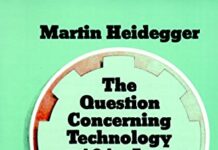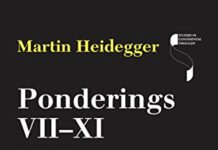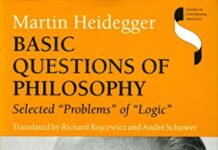
Ebook Info
- Published: 1997
- Number of pages: 320 pages
- Format: PDF
- File Size: 23.41 MB
- Authors: Martin Heidegger
Description
The text of Martin Heidegger’s 1927–28 university lecture course on Emmanuel Kant’s Critique of Pure Reason presents a close interpretive reading of the first two parts of this masterpiece of modern philosophy. In this course, Heidegger continues the task he enunciated in Being and Time as the problem of dismatling the history of ontology, using temporality as a clue. Within this context the relation between philosophy, ontology, and fundamental ontology is shown to be rooted in the genesis of the modern mathematical sciences. Heidegger demonstrates that objectification of beings as beings is inseparable from knowledge a priori, the central problem of Kant’s Critique. He concludes that objectification rests on the productive power of imagination, a process that involves temporality, which is the basic constitution of humans as beings.
User’s Reviews
Editorial Reviews: Book Description An essential work for students of Heidegger, Kant, modern philosophy, and contemporary phenomenology From the Back Cover The text of Martin Heidegger’s 1927-28 university lecture course on Emmanuel Kant’s Critique of Pure Reason presents a close interpretive reading of the first two parts of this masterpiece of modern philosophy. In this course Heidegger continues the task he enunciated in Being and Time as the problem of dismantling the history of ontology, using temporality as a clue. Within this context the relation between philosophy, ontology, and fundamental ontology is shown to be rooted in the genesis of the modern mathematical sciences. Heidegger demonstrates that objectification of beings as beings is inseparable from knowledge a priori, the central problem of Kant’s Critique. He concludes that objectification rests on the productive power of imagination, a process that involves temporality as the basic constitution of humans as beings. This is an essential work for students of Heidegger, Kant, modern philosophy, and contemporary phenomenology. About the Author Parvis Emad is Emeritus Professor of Philosophy at DePaul University and the founding co-editor (with Kenneth Maly) of Heidegger Studies. Also with Maly, he has translated Hegel’s Phenomenology of Spirit by Martin Heidegger and Encounters and Dialogues with Martin Heidegger by Heinrich Wiegand Petzet.Kenneth Maly is Professor of Philosophy at the University of Wisconsin-LaCrosse and co-editor (with John Sallis) of Heraclitean Fragments. With Parvis Emad he is currently translating Beiträge zur Philosophie (Vom Ereignis) by Martin Heidegger. Read more
Reviews from Amazon users which were colected at the time this book was published on the website:
⭐this work presents Kant in light of his declarationto do philosophy AND preserve Mysticism. trials is, to show that thinking conceives with aliveness and not by means of dead, positivist, analytical abstraction. Here, Heidegger’s ontological limits- his youth stance- is useful and productive.This book is philosophy at its best. Bravo!
⭐The Product is excellent. However, the cover is missing. Could someone please answer me why the product’s cover is missing. I really wanted the cover too.
⭐I WANT TO SEE THE TABLE CONTENTS OF AMAZON BOOKS!!!
⭐A lecture course that eventually became the famous Kantbuch, Heidegger demonstrates his remarkable capacity to think in complete sentences. The reading of Kant is decidedly Aristotlizing, with the priority of the imagination (phantasia) over reason (nous) or sense (aisthesis), and the priority of imagination cannot be separated from the priority of time, the gift which is self giving (or in Kant, self-affection: masturbation). The most clever thing that H does, and which he refrains from in the Kantbuch, is to turn the categories (quantity, quality, modality, and something else) into emanations of past, present, future. H reads modern philosophy as the triumph of the imagination, and that is no clearer than in Kant, but for Heidegger, the future possesses a priority, and the future is “image-poor.” The connection of imagination with manipulation (and potentiality) leads some (like Sartre) to identify imagination with negativity, but H wants no part of this “humanism.” Imagination and time may possess a priority that Kant “recoils” from, but H demonstrates the reductio in Kant’s argument not to valorize imagination but ironically to resuscitate aisthesis, or the potentia passiva, the ability or power to receive, to listen intently, or just to listen.
Keywords
Free Download Phenomenological Interpretation of Kant’s Critique of Pure Reason (Studies in Continental Thought) in PDF format
Phenomenological Interpretation of Kant’s Critique of Pure Reason (Studies in Continental Thought) PDF Free Download
Download Phenomenological Interpretation of Kant’s Critique of Pure Reason (Studies in Continental Thought) 1997 PDF Free
Phenomenological Interpretation of Kant’s Critique of Pure Reason (Studies in Continental Thought) 1997 PDF Free Download
Download Phenomenological Interpretation of Kant’s Critique of Pure Reason (Studies in Continental Thought) PDF
Free Download Ebook Phenomenological Interpretation of Kant’s Critique of Pure Reason (Studies in Continental Thought)




